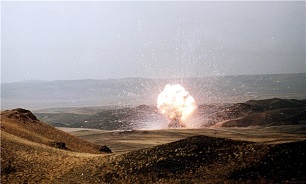US to Test Ground-Launched Cruise Missile Systems Once Banned by INF Treaty
 The agency "will commence fabrication activities on components to support developmental testing of these systems — activities that until February 2 would have been inconsistent with our obligations under the treaty", Pentagon Spokesperson Lt. Col. Michelle Baldanza said on Monday, RIA Novosti reported.
The agency "will commence fabrication activities on components to support developmental testing of these systems — activities that until February 2 would have been inconsistent with our obligations under the treaty", Pentagon Spokesperson Lt. Col. Michelle Baldanza said on Monday, RIA Novosti reported.
The move to restart the program came as a result of the Donald Trump administration announcing in February 2019 that it was withdrawing from the 1987 arms control agreement over allegations that Russia violated its end of the bargain. The treaty barred both countries from building ground-launched missiles with ranges between 500 to 5,000 kilometers. Moscow has largely denied that it ever violated the terms of the agreement.
"Because the United States has scrupulously complied with its obligations with the INF Treaty, these programs are in the early stages," Baldanza added, stressing that US efforts are "conventional only — not nuclear".
However, the spokesperson further explained that the US' renewed efforts are reversible, and would be stopped in the event that Russia returns "to full and verifiable compliance before we withdraw from the treaty in August 2019".
Days before the announcement was made, a DoD official told Aviation Week that research and development on non-nuclear concepts had started in late 2017, stating that prior development had "stopped short of fabrication activity" since going any further would've been "inconsistent" with INF terms.
Presently, both the US and the Russian governments are undergoing a six-month INF withdrawal process.
Message end/
